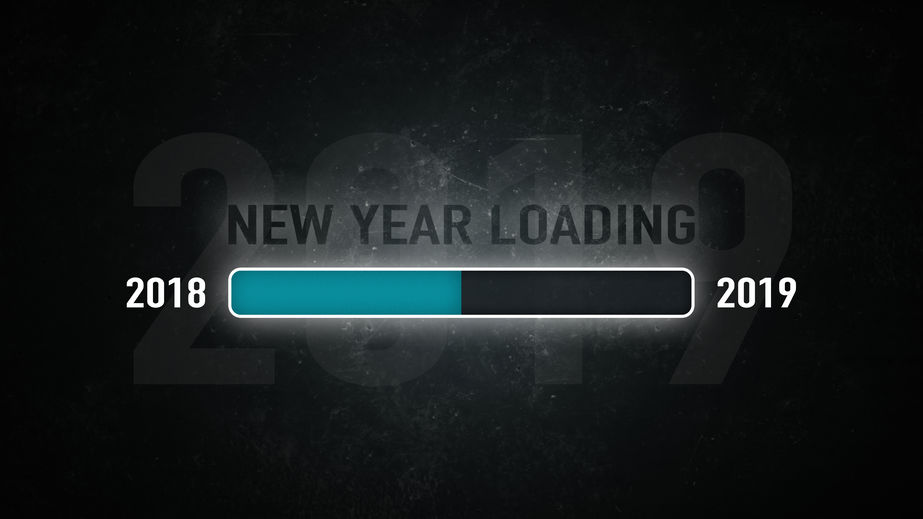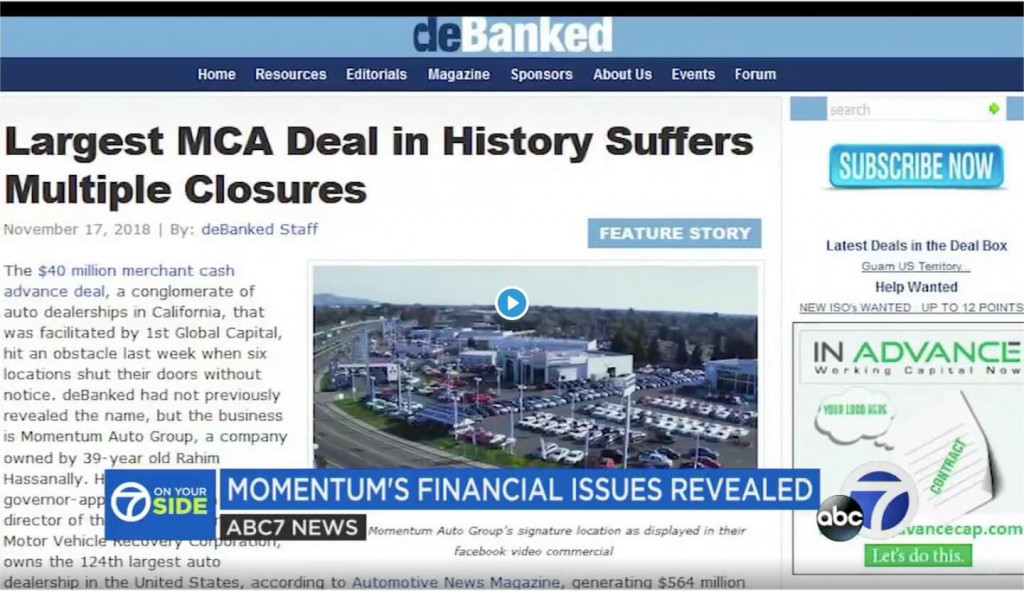Fintech
LendUp Gets a Shake-up
January 11, 2019
Among other company news, LendUp announced yesterday that it has formed a separate company called Mission Lane that will be devoted to scaling its credit card business. LendUp will continue to operate under its name and will focus on personal loans, education and savings opportunities, according to the announcement. Along with the division of LendUp, company co-founder and CEO Sasha Orloff is stepping down and is being replaced by Anu Shultes, the former General Manager of LendUp Loans.
“Both organizations are focused on helping get consumers on a path to better financial health,” Shultes said of LendUp and Mission Lane, “one will do this through offering loans, and the other through credit cards. I appreciate the Board’s confidence in me and am excited to lead this fantastic organization,” said Shultes.
According to the company announcement, Orloff, who co-founded the company with Jake Rosenberg, will remain involved in LendUp as a board member and in Mission Lane as an advisor. LendUp’s office is in Oakland, CA while the Mission Lane team is in San Francisco.
“Anu brings the perfect combination of background, skills and vision to her role as CEO,” said Orloff. “She’s an absolutely fearless leader, and she’s the right person to shepherd LendUp through its next stage.”
Shultes didn’t say if the company headcount has changed as a result of the creation of Mission Lane, but she said that they plan to grow both businesses. Former Chief Operating Officer of LendUp is interim CEO of Mission Lane, while the company looks for a permanent CEO.
Additionally, with the creation of the new company, LendUp announced that they had received an investment for an undisclosed amount that will be used to scale Mission Lane. The investment was led by LL Funds LLC and Invus Opportunities.
LendUp provides unsecured loans of up to $1,000 to subprime borrowers who might otherwise go to payday lenders. Last year, Orloff told deBanked that one’s credit score is based primarily on two factors: on-time repayment and access to credit that you don’t use.
“So we design our loans and our card products to help people make sure they’re paying on time and make sure that they’re only using the credit that they need.”
Orloff also said that LendUp places an emphasis on financial education and offers customers more money at lower rates if they take the company’s education courses.
Trained at OnDeck, LendingFront Founders Help Banks Lend to Small Businesses
January 9, 2019 Yesterday LendingFront announced that it has raised $4 million to help deliver its white label software designed to help banks and other financial institutions lend to small businesses. The company was founded in 2015 by two former OnDeck employees, Jorge Sun and Dario Vergara.
Yesterday LendingFront announced that it has raised $4 million to help deliver its white label software designed to help banks and other financial institutions lend to small businesses. The company was founded in 2015 by two former OnDeck employees, Jorge Sun and Dario Vergara.
Sun was the Chief Credit Officer at OnDeck from 2007 to 2012 and said he was the company’s third hire. Vergara joined OnDeck as its Chief Technology Officer in 2008 and was also among the first to join the company, Sun said. They both left before OnDeck went public in 2014 and took other jobs before reconnecting to create LendingFront together. Sun said that it is very difficult to create a technology company inside a large bank, which is what he tried to do in his job at Capital One, following his time at OnDeck. Vergara was working as VP of Technology at Bonobos, an online clothing company.
As Sun began talking with Vergara about going out on their own, he recalled telling Vergara: “There are no platforms in this space directly created to help lenders become more efficient…We’ve built this once [at OnDeck], let’s build it again. But the difference now is it’s strictly a technology company. We take no risk, we don’t lend. All we’re doing is powering other lenders.”
Sun said that LendingFront is “lender agnostic,” in that they license out their proprietary lending platform to any financial institution, including banks, community banks, leasing companies and Community Development Financial Institutions.
Their customers pay them a licensing fee and the customer, say a bank, sets its own parameters with regard to underwriting. The platform simplifies the underwriting process, but completely allows for customization and design of the customer experience, Sun said.
The idea of helping banks become better online lenders is not completely unique. In fact, the founders’ former employer, OnDeck, recently launched a separate entity called ODX, with the mission of making banks better lenders to small businesses.
But Sun said that while ODX and LendingFront both help banks, there is a difference between the two. He said the difference is that ODX is more of a full service shop acting on behalf of a bank.
“With us, a bank is using our platform like using Excel…versus [using] Excel and then giving it to a different company and saying ‘use Excel on our behalf.’”
Sun said that customers have funded $150 million through the LendingFront platform since they started licensing it out in 2016. They previously raised $1.6 million in 2016 and they employ 24 people in an office in New York.
How a Computer Game Master Applied His Talents to Online Lending
December 28, 2018Eden Amirav is co-founder and CEO of Lending Express. The 29 year old spends his days trying to grow his company, an online lending platform for small businesses. But about 15 years ago, as a teenager in Israel, he spent his evenings and school breaks fighting orcs, defending construct units and mostly defeating enemies in a fictional world called Azeroth. He was a master player of the computer game, Warcraft III, released in 2002. But calling Amirav “a master player” is even an understatement since Amirav was the master player in his country. He was Israel’s #1 champion in Warcraft III for four consecutive years from 2003 to 2006.
Amirav started when he was about 12 and by the time he was 14, he became his country’s best competitive player. “I was very nervous,” Amirav said about the final game of his first national tournament. He was 14 and his opponent was 18.

“I saw him as a real adult,” Amirav said.
His family and friends were among more than one thousand people watching the final game in an auditorium – rooting him on as they observed the virtual duel projected on a big screen above the stage.
“I was an underdog and my winning was a big surprise,” Amirav said. “It was a shock when I won the tournament because I was very young.”
Amirav played the game as the humans (as a opposed to the race called the “orcs”) and his chosen hero was Archmage, known for its ability to “regenerate sorceresses,” among other things. If this makes absolutely no sense, you’re not alone.
 What is clear, though, is that Amirav said that his mastery of Warcraft III helped him years later when he started creating companies.
What is clear, though, is that Amirav said that his mastery of Warcraft III helped him years later when he started creating companies.
“I think the most direct connection between gaming and becoming an entrepreneur is speed,” Amirav said. “To play [the game] on a professional level you have to be very quick with computers. Having those skills led me to programming…and when you’re working on a startup and developing code, if you do this stuff very quickly, you can accomplish a lot in a shorter time than your competition, [which] really gives you an advantage.”
Amirav said that in his heyday as a computer gamer, he performed more than 200 actions per minute. (That means either clicks on the mouse or taps on the keyboard.) Amirav has used his ability to move fast to expand Lending Express rather quickly in the U.S. The platform, which connects small business owners to funders, launched first in Australia in October 2016. In June of this year, the company announced its official entrance into the U.S. market, and Amirav said that Lending Express has assisted in funding almost as much volume in the U.S. in a little over six months as it has in Australia in over two years.

He said he expects the U.S. to surpass Australia in funding volume in 2019 and he plans to grow its U.S. office, which is now a one-person operation in San Matteo, CA.
Also, Amirav said that they should be announcing shortly $100 million in funding facilitated by Lending Express. He said their total volume is about $98 million right now.
Even though Amirav competed one-on-one, he did not practice alone. In fact, he said he was always part of what he called a “clan,” where gamers would practice together. Now, instead of practicing with a clan, Amirav works with and leads a team of more than 30 employees at the Lending Express headquarters in Tel Aviv.
“You get to know these people and it’s like a band,” Amirav said of the his gaming clan. “You need everyone to be playing at the right tempo.”
Editor’s note: A profile on Amirav in Forbes incorrectly attributed his gaming background to World of Warcraft. That is another game with an entirely different style of play and objectives. Amirav was a champion of Warcraft 3, a Player vs. Player (PvP) game format. World of Warcraft is a Massive Multiplayer Online Role Playing Game (MMORPG).
deBanked’s Most Popular Stories of 2018
December 22, 2018
Five of the top 10 most read stories of 2018 were related to the saga of 1st Global Capital; The bankruptcy, SEC charges, the revelation that they had made a $40 million merchant cash advance, and finally the devastating news of that deal falling apart. We decided to lump all of them together in our #1 slot, but first, the following story was the most independently read of 2018:
The Saga of 1st Global Capital
1. Largest MCA Deal in History Suffers Multiple Closures was picked up by ABC News in California, placing deBanked’s website on TV for the first time.
These were the other most read stories related to 1st Global Capital
- 1 Global Capital Files Chapter 11
- Syndication at Heart of SEC and Criminal Investigation into 1st Global Capital
- 1st Global Capital Charged With Fraud by SEC
- The Largest Merchant Cash Advance in History
Bloomberg Businessweek began publishing a series in November about the allegedly scandalous merchant cash advance industry. An initial review by deBanked uncovered questionable holes in their reporting, but when the series’ senior editor thanked a state senator for proposing legislation in response, suspicious ties were uncovered, followed by one Bloomberg reporter wiping his twitter account clean. Bloomberg’s exaggerated series dubbed #signhereloseeverything has spawned a highly popular counterseries that has challenged Bloomberg’s reporting. We call it #tweetherewipeeverything. The following stories were all in the year’s top 12 most read, but we’ve lumped them together here at #2.
The Bloomberg Blitz
2. Multimillionaire CEO Claims Predatory Lenders are Causing Him to Sell His Furniture for Food
The other two were:
Arrested for Data Theft
3. CAUGHT: Backdoored Deals Leads to Handcuffs was the year’s third most read story.
MCAs are Not Usurious
4. It’s Settled: Merchant Cash Advances Not Usurious came in at #4 this year, ending the debate that has persisted in hundreds of cases at the trial court level in New York State.
In October 2016, the plaintiffs sued defendant Pearl in the New York Supreme Court alleging that the Confession of Judgment filed against them should be vacated because the underlying agreement was criminally usurious. As support, plaintiffs argued that the interest rate of the transaction was 43%, far above New York State’s legal limit of 25%. The defendant denied it and moved to dismiss, wherein the judge concurred that the documentary evidence utterly refuted plaintiffs’ allegations. Plaintiffs appealed and lost, wherein The Appellate Division of The First Department published their unanimous decision that the underlying Purchase And Sale of Future Receivables agreement between the parties was not usurious.
Debt Settlement Company Sued
5. ISOs Alleged to Be Partners in Debt Settlement “Scam” in Explosive Lawsuit was #5 in 2018. The lawsuit ultimately settled and resulted in a big payout to the MCA companies.
A Broker’s Bio
6. The Broker: How Zach Ramirez Makes Deals Happen was #6. deBanked interviewed Zachary Ramirez to find out what makes a successful broker like him tick, how he does it, and what kinds of things he’s encountered along the way.
Ban COJs?
7. Senate Bill Introduced to Ban Confession of Judgments Nationwide was #7. Although this is related to the Bloomberg Blitz, the introduction of this bill fits more neatly into a category of its own.
Who’s Funding How Much?
8. A Preliminary Small Business Financing Leaderboard was #8. Despite this being published early in the year and offering detailed origination volumes for several companies all in one place, it wasn’t as well-read as all the drama that unfolded later in the year. Unsurprisingly, a chart of The Top 2018 Small Business Funders by Revenue ranked right behind this one, but we’ve lumped it in with #8 since it’s related.
Thoughts by Ron
9. Ron Suber: ‘This Industry Will Look Very Different One Year From Now’ was #9. Known as the Magic Johnson of fintech, the 1-year prediction by former Prosper Marketplace president Ron Suber, originally captured in the LendAcademy Podcast, resonated all throughout the fintech world. Will he be proven correct?
A Rags to Riches Tale
10. How A New Hampshire Teen Launched A Lending Company And Climbed Into The Inc. 500 was #10.
Josh Feinberg was not a complete newbie when he started in the lending business in 2009, but he also had a long way to go to find success. His dad had been in the business for 15 years and shortly after graduating high school, Josh started to work in equipment financing and leasing at Direct Capital in New Hampshire, his home state. He then had a brief stint working remotely for Balboa Capital, but he wasn’t sure that finance was for him.
He was 19, with a three year old daughter, and he took a low paying job working at a New Hampshire pawn shop owned by his brother and a guy named Will Murphy.
“I was making $267 a week at the pawn shop and I was having to ask friends to help me pay my rent for a room,” Feinberg said. “So at that point, I realized that something needed to change.”
2019 Alternative Finance Predictions
December 21, 2018
With 2019 approaching, deBanked asked executives in the funding and payments industry if they had any predictions for the new year. We kept it pretty open-ended and received forecasts regarding technology, regulations, and the evolving relationship between fintech companies and banks. And yes, we also asked a few lawyers in the small business lending space for their two cents. Below is what they had to say:
 “The hype around cryptocurrencies is nearly gone, and it’s time to focus on the more interesting part of it – the blockchain technology. In 2019 we expect to see first use-cases of such technology for logging and sharing data among lenders. There is a true potential for real-time data sharing which will help lenders avoid lending to clients which just took similar loans from other lenders, in a decentralized and anonymous way. This will allow the industry to overcome one of the challenges quick loan approvals bring: real time loans stacking.”
“The hype around cryptocurrencies is nearly gone, and it’s time to focus on the more interesting part of it – the blockchain technology. In 2019 we expect to see first use-cases of such technology for logging and sharing data among lenders. There is a true potential for real-time data sharing which will help lenders avoid lending to clients which just took similar loans from other lenders, in a decentralized and anonymous way. This will allow the industry to overcome one of the challenges quick loan approvals bring: real time loans stacking.”
Ido Lustig, Chief Risk Officer, BlueVine
 “We look forward to big changes coming. Four years ago banks still were not sure about Fintech firms. Now the banks are approaching alternative lenders trying to figure out various partnership options. We think in 2019 we will see banks engage in various levels of mutually prosperous partnerships…We believe new products will be launched in 2019 that will continue to support small business growth. And as the Alt Lenders are able to access cheaper cost of capital, it will give more options to small business owners.”
“We look forward to big changes coming. Four years ago banks still were not sure about Fintech firms. Now the banks are approaching alternative lenders trying to figure out various partnership options. We think in 2019 we will see banks engage in various levels of mutually prosperous partnerships…We believe new products will be launched in 2019 that will continue to support small business growth. And as the Alt Lenders are able to access cheaper cost of capital, it will give more options to small business owners.”
Robert Gloer, President and COO, IOU Financial
 Given the explosive growth of MCAs and the fact that MCAs have evolved from an early stage industry to a mainstream industry – MCAs have been around for decades – we expect regulation of the industry to become a reality. At 6th Avenue Capital, we believe regulation will be healthy for the industry and will reduce the industry’s bad actors, allowing those institutions that practice transparency and industry best practices to thrive.
Given the explosive growth of MCAs and the fact that MCAs have evolved from an early stage industry to a mainstream industry – MCAs have been around for decades – we expect regulation of the industry to become a reality. At 6th Avenue Capital, we believe regulation will be healthy for the industry and will reduce the industry’s bad actors, allowing those institutions that practice transparency and industry best practices to thrive.
As a former Chief Compliance Officer, I set up the company with regulation in mind. In fact, we are the only firm to be a member of both ILPA and SBFA, both organizations that are active participants working with regulators to help create a regulatory environment beneficial to both SMBs and SMB funders. The need for alternative credit, and access to fast capital, continues to grow and the industry is not going away with regulations. The winners in the MCA space will be those that adopt sound practices early.
Christine Chang, CEO, 6th Avenue Capital
 “We will likely continue to see state efforts to enact disclosures in MCA and small business lending transactions. We will also likely see efforts at the state level to ban practices viewed as aggressive by elected officials. These efforts will lead to a weeding out of the weaker players in the space and will strengthen the companies dedicated to compliance and customer service.
“We will likely continue to see state efforts to enact disclosures in MCA and small business lending transactions. We will also likely see efforts at the state level to ban practices viewed as aggressive by elected officials. These efforts will lead to a weeding out of the weaker players in the space and will strengthen the companies dedicated to compliance and customer service.
Catherine Brennan, Partner, Hudson Cook
 “A business slowdown (possible but hard to predict, at least by me) will test the effectiveness of algorithm-based credit granting. I am not optimistic. Mid-market banks might start to purchase MCA-type technology and try their hand at selling it, albeit at a lower cost.”
“A business slowdown (possible but hard to predict, at least by me) will test the effectiveness of algorithm-based credit granting. I am not optimistic. Mid-market banks might start to purchase MCA-type technology and try their hand at selling it, albeit at a lower cost.”
Robert Zadek, Of Counsel, Buchalter
“Older, more traditional SMBs will broaden their lending horizons. In 2017, 30% of business owners looked for a small business loan online. The 70% who didn’t are predominantly older, and more traditional in their approach to seeking financing. In 2019, we will see a more aggressive push by SMB lenders to tap into a more mainstream audience of business owners who have not been looking online for financing options. This will be driven in part by increased competition between the SMB lenders, and a larger push by those lenders to market themselves to a broader audience of SMBs.”
Charles Amadon, VP of Business Development & Strategic Partnerships, BlueVine
“In 2019, we’ll see more and more retailers offer flexible, pay-over-time financing options and promotional 0% tools to drive sales and make gifting more affordable for customers. As customers continue to look for online pay-over-time options, we can expect to see savvy [merchants] taking advantage of these trends to both improve performance and meet the expectations of the modern shopper.”
Kate Levin, Vice President of Merchant Success, Bread
“Large corporations, from card payment organizations right through to banks, are making significant investments in reinventing themselves. I think some of them will be very successful in doing this…like Marcus by Goldman Sachs and also First Data’s Clover product. These both demonstrate that long-established companies are starting to really get it right when it comes to being innovative with fintech. I believe in the next five years, we’ll see other huge companies begin to get it right with fintech.”
Simon Black, CEO, PPRO
Entegra Bank Chooses Velocity Solutions to Power Its Small Business Digital Lending
December 18, 2018 Velocity Solutions announced today that its Akouba digital lending platform was selected by Entegra Bank to power the bank’s digital lending for its small and medium-sized business customers. Akouba provides community and regional banks with origination and underwriting services.
Velocity Solutions announced today that its Akouba digital lending platform was selected by Entegra Bank to power the bank’s digital lending for its small and medium-sized business customers. Akouba provides community and regional banks with origination and underwriting services.
“We selected Akouba not only for their cutting-edge technology and willingness to work with us, but for the very positive impact we believe this will have on the bank’s bottom line and on the customer experience,” said Charles Umberger, Executive VP and Chief Lending Officer for the Franklin, NC-based Entegra Bank.
According to the Velocity Solutions statement, Akouba is the only small business digital lending solution endorsed by the American Bankers Association (ABA). Akouba was endorsed by the ABA back in February 2017.
“The ABA’s endorsement will give lending institutions the assurance that Akouba’s solutions meet the highest standards,” said CEO of Akouba Chris Rentner, when they received the endorsement from the ABA. “In a rapidly changing lending environment, and with marketplace lenders disrupting the business lending space, our platform will help banks bring their customers the technology they have been lacking.”
In the same way that OnDeck’s ODX is trying to improve online lending for large banks, like Chase and PNC, Velocity’s Akouba does the same thing for regional banks.
“The small business loan application process is very time-sensitive and costly for banks, and there is a need to simplify and accelerate the process,” said Bryan Luke, chairman of ABA’s Endorsed Solutions Banker Advisory Council.
Velocity Solutions, which operates Akouba, is based in Fort Lauderdale, FL and employs over 100 people, according to Crunchbase. Entegra provides personal and business banking serves at 20 retail branches throughout Georgia, North Carolina and South Carolina.
Cross River Bank Raises $100 Million
December 11, 2018Cross River Bank, which provides banking services to fintech companies, announced last week the completion of a funding round of roughly $100 million. This was comprised of a $75 million equity investment from KKR, along with capital from Andreessen Horowitz, Battery Ventures, Rabbit Capital, and funding from new investors CredEase and Lion Tree. This adds to a $28 million raise a little over two years ago.
Cross River, which originated more than $5 billion in loans as of the end of August 2018, has developed partnerships with fintech leaders to build fully compliant and integrated products within the lending marketplace and payment processing spaces. They have about 15 lending platform partners, including fintech clients Affirm, Best Egg, RocketLoans, Coinbase and TransferWise.
According to the announcement, this new capital will be used to allow Cross River to continue building a complete banking platform where fintech companies can leverage best-in-class banking technology coupled with compliance.
“Cross River offers solutions to fintech companies by giving them access to a full suite of banking solutions and services in a single, fully compliant and innovative platform, making it an increasingly attractive and valuable franchise in a dynamic marketplace,” said Dan Pietrzak, Member and Co-Head of Private Credit at KKR, Cross River’s leading investor.
According to its website, Cross River was named “most innovative bank” by LendIt in 2017 and 2018. Founded in 2008, the Fort Lee, NJ, business-oriented bank has more than 180 employees.
Finitive Appoints Neil Wolfson to Board
December 10, 2018 Finitive announced today that it has appointed Neil Wolfson to its Board of Directors. Wolfson also serves on the Board of Directors at OnDeck.
Finitive announced today that it has appointed Neil Wolfson to its Board of Directors. Wolfson also serves on the Board of Directors at OnDeck.
“Finitive has established an innovative platform to provide institutional investors with direct access to alternative lending investments,” said Wolfson. “Finitive’s platform brings further transparency to this asset class.”
According to an April 2018 deBanked story, Finitive was founded in August 2017 and has two kinds of clients: institutional investors and alternative lending companies. Back in April, the company had only four alternative lender clients. Today, they have eight.
“We are very selective [with our lending clients],” Finitive founder and Executive Chairman told deBanked. “We are not a list service.”
Wolfson spent the last decade as President and Chief Investment Officer of SF Capital Group, a private investment group for high net worth families. There, he invested in over 30 direct debt and equity investments in emerging technology companies with a focus on FinTech companies.
Prior to this, Wolfson spent five years as Chief Investment Officer and President of Wilmington Trust Investment Management, a $40 billion investment management firm, and before that, he was the National Partner in charge of KPMG’s Investment Consulting Practice, representing over $100 billion of assets.
“Neil’s experience investing in global technology companies, coupled with a deep understanding of alternative lending markets, makes him an ideal fit for Finitive’s board,” said Barlow.
Finitive is based in New York and has more than 10 employees.

































